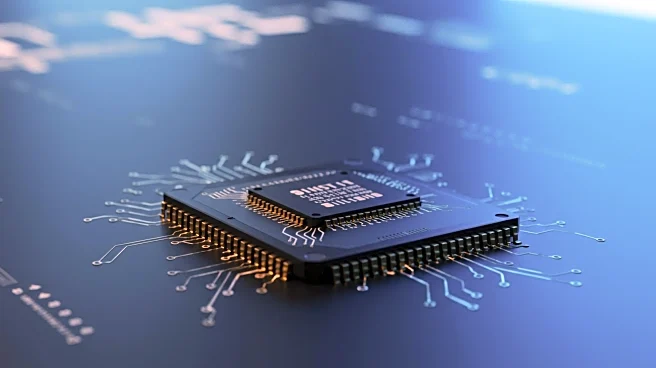What's Happening?
The U.S. government is planning to acquire a 10% stake in Intel, as announced by President Trump. This development comes at a time when Intel is undergoing significant restructuring under CEO Lip-Bu Tan, who is focusing on core businesses and addressing competition from companies like Nvidia. The decision follows a meeting between Tan and President Trump, where they discussed potential collaboration between the government and Intel. This move is seen as a strategic partnership to bolster Intel's position in the semiconductor industry.
Why It's Important?
This potential government stake in Intel represents a significant shift in U.S. policy, as government ownership in private companies is rare outside of crisis situations. The move could have substantial implications for the semiconductor industry, potentially providing Intel with the support needed to compete more effectively against rivals. It also reflects the government's interest in maintaining a strong domestic semiconductor industry, which is crucial for national security and technological leadership. Stakeholders in the tech industry and financial markets will be closely watching the impact of this partnership on Intel's market position and stock performance.
What's Next?
The formal announcement of the deal is expected soon, and it will be interesting to see how Intel's competitors and the broader tech industry respond. The partnership may lead to increased government involvement in the tech sector, potentially influencing future policy decisions. Additionally, the market will be monitoring how this stake affects Intel's restructuring efforts and its ability to innovate and expand its market share.
Beyond the Headlines
This development raises questions about the role of government in private enterprise and the potential for increased state influence in strategic industries. It also highlights the ongoing geopolitical competition in technology, particularly in semiconductors, which are critical to various sectors, including defense and consumer electronics. The ethical and economic implications of such government interventions will likely be a topic of debate among policymakers and industry leaders.











